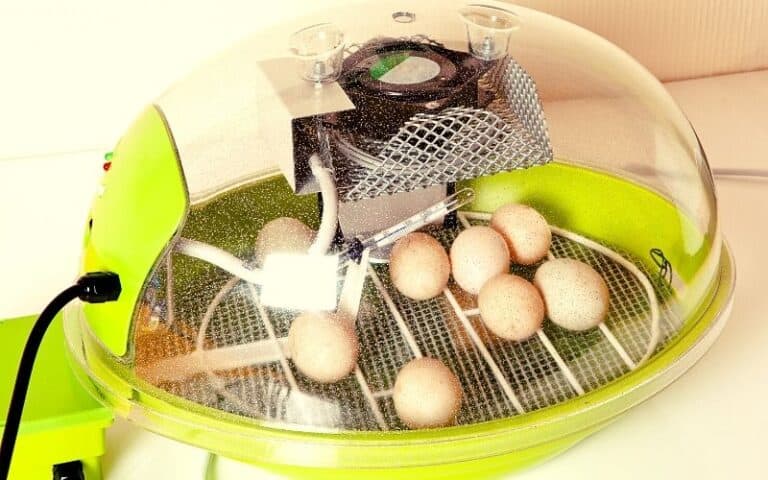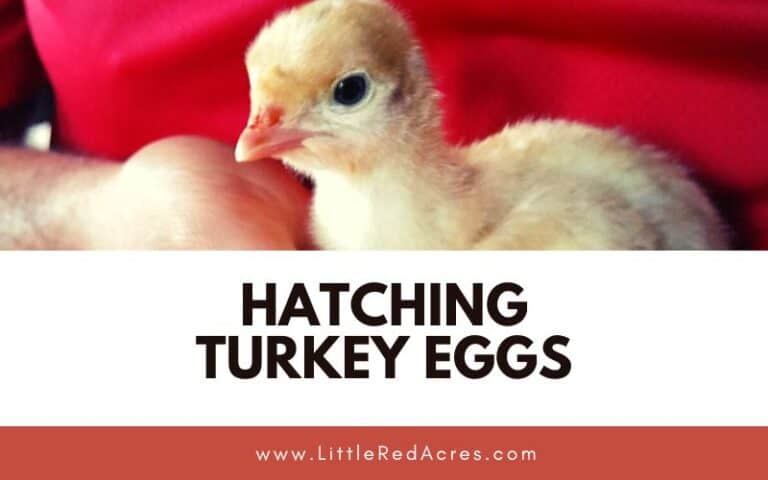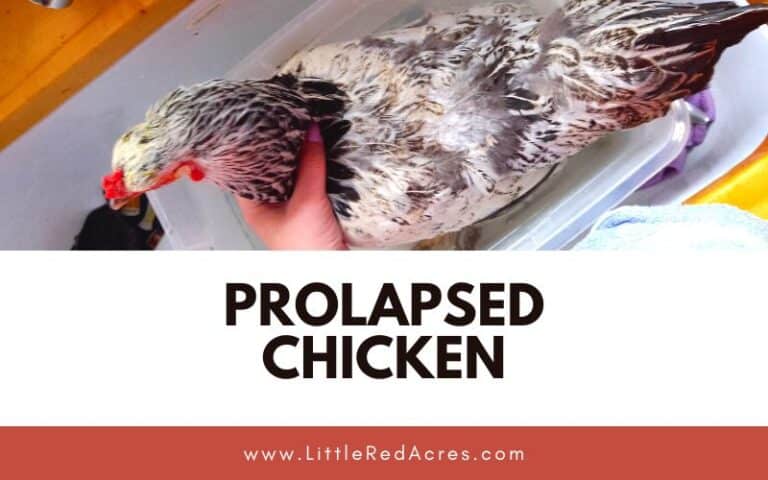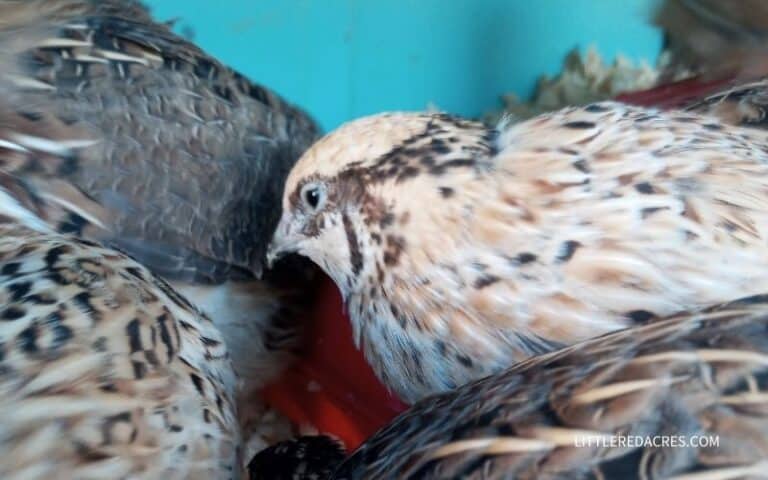How to on Hatching Chicken Eggs
Inside: Unlock the secrets of successful chicken egg hatching with our comprehensive guide. Learn expert tips and techniques for a successful hatch every time!
Hatching chicken eggs can be a fascinating and fulfilling endeavor, allowing you to witness the miracle of life firsthand. It's something that we never get tired of, and we hatch a lot of eggs every spring and summer. Raising chickens from eggs is a super exciting adventure.

This post may contain affiliate links, see my disclosure policy for more information.
How to On Hatching Chicken Eggs
While the average incubation period for chicken eggs is 21 days, variations are common, with some eggs hatching a few days earlier or later.
Let's jump right into the essential steps of hatching chicken eggs, ensuring a successful and enjoyable experience.
Get updates & freebies delivered to your inbox!
The journey of hatching chicken eggs begins with understanding the incubation period. On average, it takes 21 days for chicken eggs to hatch, but slight variations can occur.
Some eggs may hatch a couple of days early, while others might take a few extra days. Patience and observation are key during this period.
Something we have noticed is that silkie chicks seem to hatch on day 20, every time we incubate them.

What You Need to Hatch Eggs
- fertile eggs
- incubator
- hygrometer
- a way to maintain humidity
Day One
During the first day of incubation, it is crucial not to turn the eggs.
This allows the embryo to settle into the proper position within the egg, preparing for the subsequent stages of development.
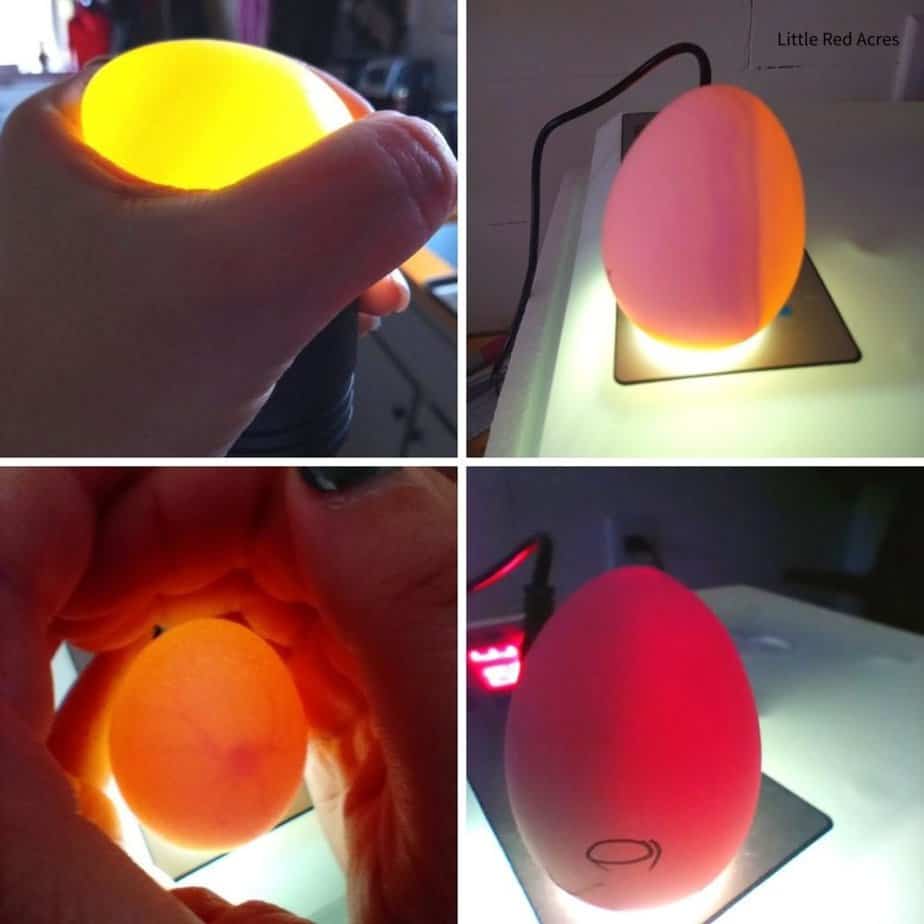
Days 2-17
Starting from day two until day seventeen, you need to turn the eggs multiple times a day. Ideally, turn the eggs at least three to five times daily.
Turning the eggs ensures that the developing embryos receive an equal distribution of nutrients and prevents the embryo from sticking to the eggshell. It's advisable to mark one side of each egg to help you keep track of the turns. Most use Xs and Os.
Even if you are using automatic turners I recommend marking the eggs to make sure that your turners are moving the eggs.
Candle Eggs
You will want to candle your eggs on days 7, and 15, and the final time would be day 18 before you lock down your incubator.
Learn more about what to you look for during each candling in this article.
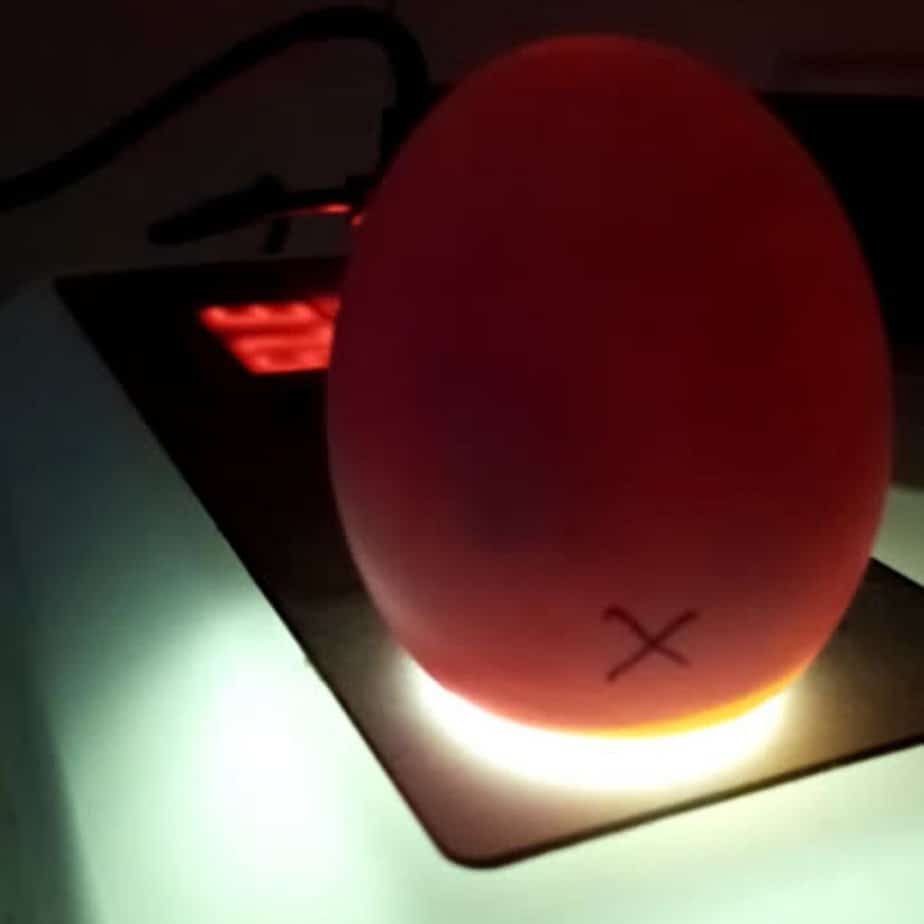
Day 18: Lockdown Begins
On day eighteen, you enter a critical phase known as lockdown. At this point, you stop turning the eggs.
Lockdown is the final stage of incubation when the chicks position themselves for hatching. Maintain consistent temperature and humidity levels, as any major fluctuations can negatively impact the eggs.
During the lockdown phase, it's important to maintain a slightly higher humidity level to facilitate successful hatching. Increasing the humidity to around 65-70% helps prevent the membrane from drying out and assists the chicks in breaking through the shell.
Avoid opening the incubator unnecessarily during this time, as it may disrupt the humidity and temperature levels. It can also kill the chicks that are hatching causing something called “shrink wrapping” to happen.
This is where because of the loss of humidity, which comes from opening the lid, the membrane becomes stuck to the chick. They become unable to move, and therefore hatch.
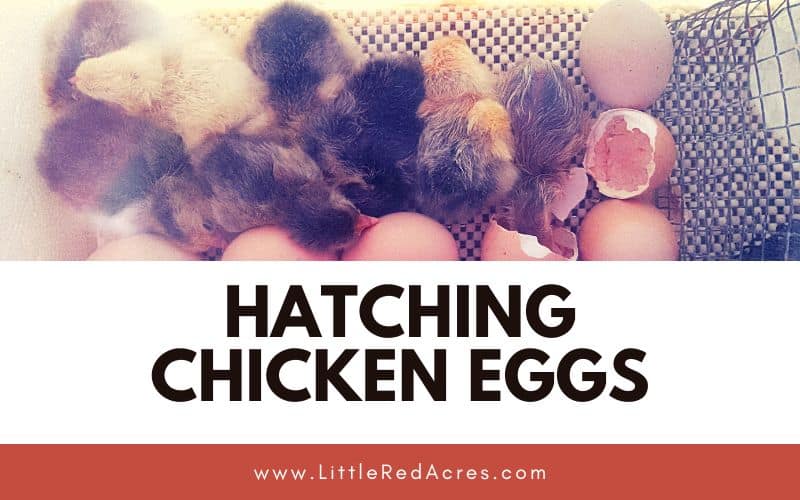
Hatching Process
As you approach the final days of incubation, you may notice some eggs starting to wiggle or hear chirping sounds. These are signs that hatching is imminent.
At first, you will see a little pip in the shell, a small hole, and then the chick will unzip the egg. They literally peck around the egg so the top pops off!
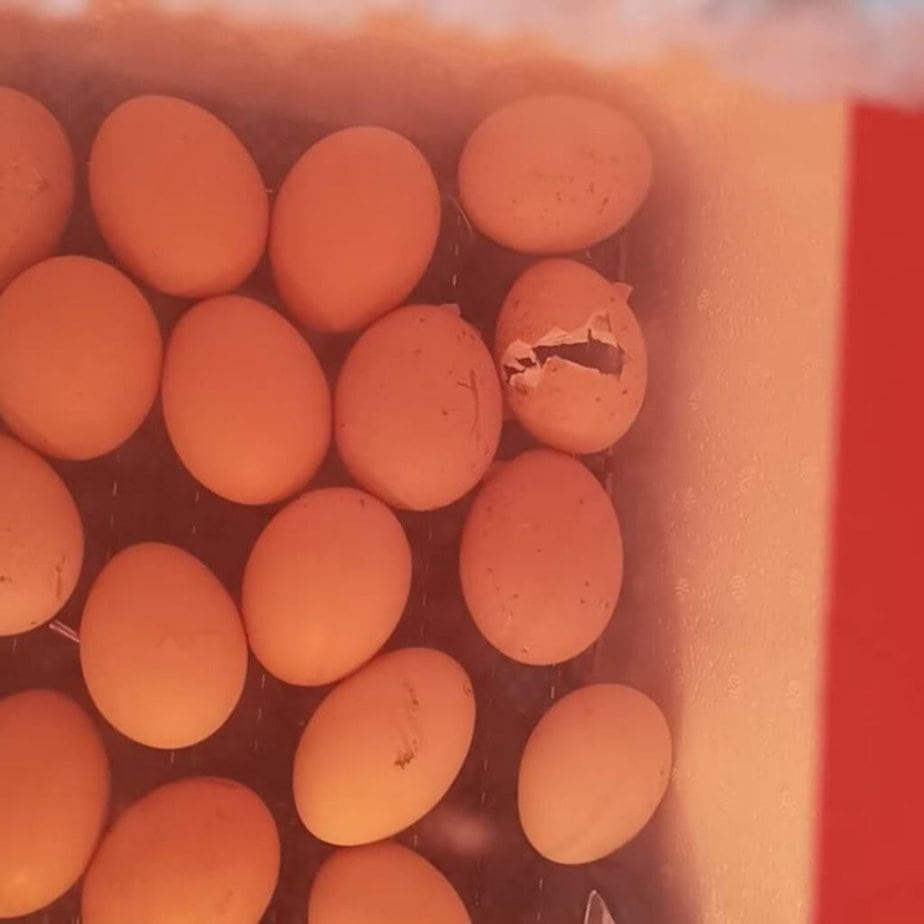
It's crucial to resist the urge to assist the chicks during the hatching process, as they need to exert effort to strengthen their muscles. Premature assistance can result in weak chicks. Observe the hatching process with patience and marvel at nature's wonders.
Hatching chicken eggs is a remarkable experience that requires careful attention to detail and patience. Remember to maintain optimal temperature, humidity, and egg-turning routines throughout the incubation period.
Frequently Asked Questions
How long do chicken eggs take to hatch? 20 to 21 days
When should I let my chickens hatch their own eggs? Always set eggs under a broody hen within a week of her becoming broody. There are some breeds that make much better mothers than other. Silkies are great for example.
How can you tell if a chick is alive in an egg? You'll see blood pumping through the heart of a tiny, developing embryo if you candle a fertile egg on Day 7. If the embryo dies at this point, you may still see a faint network of blood vessels inside the egg's contents.

Want More?
Identifying Fertilized Eggs: Tips for Determining Viability
Different Types of Egg Turners for Incubators
Choosing the Right Egg Incubator

